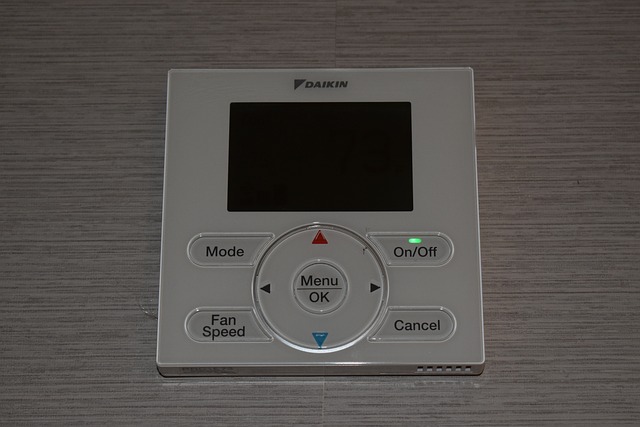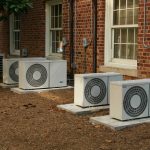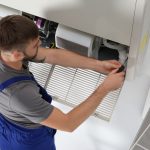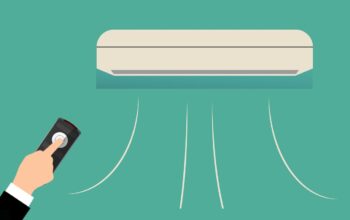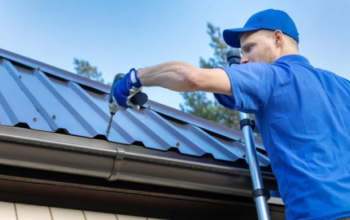How Long Do HVAC Systems Last?
HVAC systems are an essential aspect of modern living, helping to keep the indoor environment comfortable and healthy. However, like all mechanical systems, they eventually need to be replaced.
Understanding the lifespan of HVAC systems can help homeowners plan for future repairs and replacements. Also, you can find out how long does a furnace last if you are looking for information related specifically to your furnace.
What Factors Determine the Lifespan of an HVAC System?
The lifespan of an HVAC system can vary depending on many factors, including those listed below.
Type of System: Different types of HVAC systems have different expected lifespans. For example, a boiler or furnace typically lasts between 15 and 20 years, while split-system air conditioners can last up to 15 years.
Quality of the system: Higher-quality HVAC systems manufactured by well-known brands and installed by a professional contractor, tend to last longer than lower-quality systems.
Maintenance: Regular maintenance, including cleaning and inspections, can help extend the lifespan of an HVAC system.
Environmental factors: Systems that are exposed to extreme temperatures, high humidity, or other environmental factors may not last as long as those in more moderate climates.
How Long Do Different Types of HVAC Systems Typically Last?
The lifespan of a system depends on wear and tear, amount of use, and other factors shown above, but these are the typical life expectancies of various HVAC systems.
- Furnaces: Between 15 and 20 years.
- Boilers: Between 15 and 20 years.
- Heat pumps: Between 10 and 15 years.
- Air conditioners: Between 10 and 15 years.
- Ductwork: Between 15 and 20 years, but can last longer with proper maintenance
- Thermostats: Electronic thermostats typically last between 10 and 15 years, while programmable thermostats typically last between 5 and 10 years.
Why is Regular Maintenance Important for an HVAC System?
Regular maintenance is crucial to keeping your HVAC system running efficiently and prolonging its lifespan. HVAC systems should be professionally serviced once or twice per year. Some of the benefits of regular maintenance include the following.
- Improved efficiency: Runs more efficiently, saving you money on your energy bills.
- Fewer repairs: Prevents small problems from turning into major repairs.
- Longer lifespan: Lasts longer than one that has not been maintained.
- Increased safety: Helps to identify and fix potential safety hazards.
How Do I Know When It’s Time to Replace an HVAC System?
Even with regular maintenance, all HVAC systems will eventually need to be replaced. Here are a few signs that it may be time to replace your system:
- Aging equipment: If your system is more than 15 years old, it is likely near the end of its lifespan.
- Excessive repairs: If your system is frequently in need of repairs, it may be more cost-effective to replace it rather than continue to repair it.
- Increased costs: If your energy bills have increased without any changes to your usage, your HVAC system may be becoming less efficient.
- Poor indoor air quality: If you notice that your indoor air quality has decreased, your HVAC system may not be functioning properly and may need to be replaced.
How Do I Choose a New HVAC System?
When choosing a new HVAC system, there are several factors to consider. Some key things to consider include these.
Size of your home: The size of your home will determine the size and type of HVAC system that you need. A larger home will require a bigger system, while a smaller home can use a smaller one.
Climate: Climate plays a role in determining the type of HVAC system that you need. If you live in a hot and humid climate, you will need a different type of system than if you live in a cool and dry climate.
Energy Efficiency: Look for an HVAC system with a high SEER (Seasonal Energy Efficiency Ratio) rating, which measures the unit’s cooling output over a typical cooling season.
Features: Different HVAC systems come with different features, such as programmable thermostats, air filtration systems, and zone control systems. Consider which features are important to you.
Budget: It is important to have a budget in mind before you start shopping. Be sure to choose a system that fits within your budget and offers the best value for your money.
Installation: Always consult a professional HVAC contractor for the installation of your new HVAC system. They will be able to ensure that the system is installed correctly and is running at its optimal efficiency.
How to Select A Trustworthy HVAC Company
When selecting an HVAC company to install your HVAC system, there are multiple factors you should consider to ensure that you choose a reputable and trustworthy company. Some key things to look for include:
Licensing and certification: Make sure the company is licensed and certified to install HVAC systems in your state. This will guarantee that they are qualified and have the necessary knowledge and skills to properly install your system.
Insurance: Choose a company that is fully insured to protect yourself and your property in case of any accidents or damages during the installation process.
Experience: Look for a company with a proven track record of installing HVAC systems. Check for how long they have been in business and if they have a good reputation.
Customer reviews: Read customer reviews and testimonials to see what other customers have experienced with the company. This will give you a good idea of their level of service and the quality of their work.
Warranty: Make sure the company offers a warranty for their work and the HVAC system they install. This will give you peace of mind knowing that the company stands behind its work.
Professionalism: Look for a company that is professional and reliable. They should be able to provide you with a detailed estimate and explain the installation process in clear and simple terms.
Energy-efficient solutions: An HVAC company that provides energy-efficient solutions, such as Energy Star-rated products, geothermal heating, or solar-powered options can help you save on energy costs in the long run.
It’s also a good idea to get multiple estimates from different companies to compare prices and services. Don’t hesitate to ask for references and follow up with those references to learn more about the company’s work.
HVAC systems are an important part of your home and play a crucial role in maintaining indoor comfort and air quality. The lifespan of an HVAC depends on many factors but with best practices, you can get the longest use of your equipment.
Related Posts

